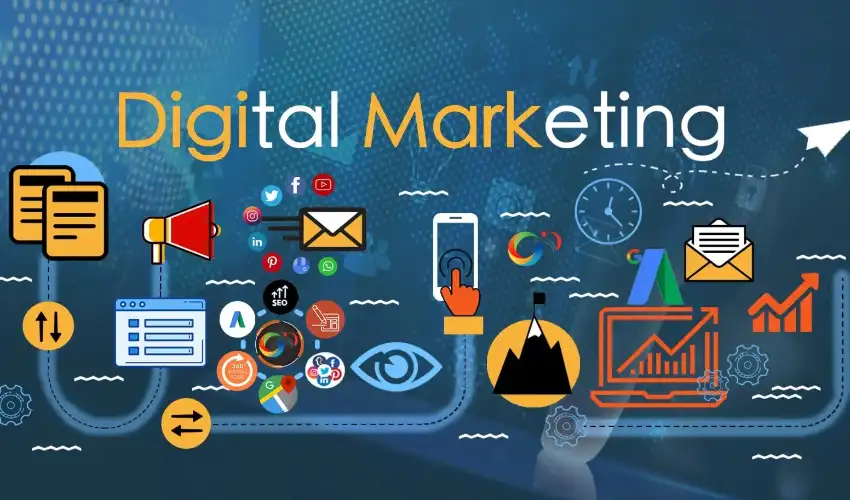Digital agencies operate in a fast-paced environment where staying ahead of trends is essential for delivering value to clients. As technology evolves and consumer behaviors shift, agencies must adapt their strategies to remain competitive. In 2025, several key trends are shaping how digital agencies approach marketing, client engagement, and service offerings. Understanding these trends can help agencies refine their strategies and ensure long-term success.
One major trend influencing Digital Agency News strategies is the increasing role of artificial intelligence. AI tools are transforming how agencies analyze data, personalize campaigns, and automate routine tasks. From AI-driven content creation to predictive analytics, agencies can deliver more targeted and efficient marketing strategies. Leveraging AI allows teams to focus on creative and strategic initiatives, while AI handles time-consuming processes such as data segmentation, lead scoring, and reporting. Agencies adopting AI early are gaining a competitive advantage by providing faster, more accurate insights for their clients.
Another trend is the growing importance of omnichannel marketing. Consumers interact with brands across multiple platforms, from social media to websites, email, and mobile apps. Digital agencies are now designing strategies that ensure a seamless brand experience across every touchpoint. This requires integrating marketing technologies and maintaining consistent messaging. Agencies are increasingly using customer journey mapping tools and analytics platforms to identify opportunities for engagement and optimize campaigns across all channels. By embracing omnichannel strategies, agencies can enhance customer experiences and drive better conversion rates.
Content personalization is also a critical trend shaping agency strategies. Modern consumers expect content that is relevant to their needs, preferences, and behaviors. Digital agencies are leveraging data analytics and AI tools to segment audiences and deliver personalized messages at scale. Personalized content can take many forms, including customized email campaigns, dynamic website experiences, and tailored social media posts. Agencies focusing on personalization are seeing higher engagement rates, improved customer loyalty, and stronger ROI for their clients.
Sustainability and social responsibility have become increasingly important in the digital marketing landscape. Consumers are paying more attention to how brands impact the environment and society. Digital agencies are helping clients align their marketing strategies with ethical and sustainable practices. This includes promoting eco-friendly products, highlighting corporate social responsibility initiatives, and ensuring transparent communication. Agencies that embrace sustainability not only enhance their clients’ reputations but also attract conscious consumers who prioritize responsible brands.
Data privacy and compliance are critical considerations for agencies in 2025. With stricter regulations like GDPR and CCPA, agencies must ensure that their strategies adhere to legal requirements. This trend emphasizes transparency in data collection and usage. Digital agencies are investing in secure technology solutions and adopting privacy-first marketing approaches. Compliance-driven strategies build trust with audiences and prevent costly legal issues, which is increasingly valued by both clients and consumers.
Another shaping trend is the rise of interactive and immersive experiences. Technologies like augmented reality (AR), virtual reality (VR), and interactive video are transforming how brands engage their audiences. Digital agencies are incorporating these technologies into campaigns to create memorable and engaging experiences. For example, AR product visualizations allow consumers to experience items virtually before purchase, increasing engagement and reducing returns. Immersive marketing strategies help agencies differentiate their clients’ brands in a crowded digital landscape.
Collaboration tools and remote work capabilities have also influenced agency strategies. The pandemic accelerated the shift toward distributed teams, and agencies continue to adopt flexible work models. Tools for project management, real-time collaboration, and virtual client meetings enable agencies to maintain productivity and deliver results efficiently. Agencies that optimize their internal workflows through technology are better positioned to handle complex campaigns and scale services for clients.
Finally, performance-driven marketing and measurable results remain a core trend. Clients demand clear ROI from their marketing investments, and agencies are responding with data-focused strategies. Agencies are integrating advanced analytics and reporting tools to track campaign performance and adjust tactics in real time. This results-oriented approach ensures accountability and helps agencies demonstrate the tangible value of their services.
In conclusion, digital agencies in 2025 must adapt to a rapidly evolving landscape shaped by AI, omnichannel marketing, personalization, sustainability, data privacy, immersive technologies, remote collaboration, and performance-driven strategies. Staying attuned to these trends allows agencies to deliver innovative solutions, build stronger client relationships, and maintain a competitive edge. Agencies that embrace these trends proactively are not only better equipped to meet client expectations but also positioned to thrive in the dynamic world of digital marketing.



